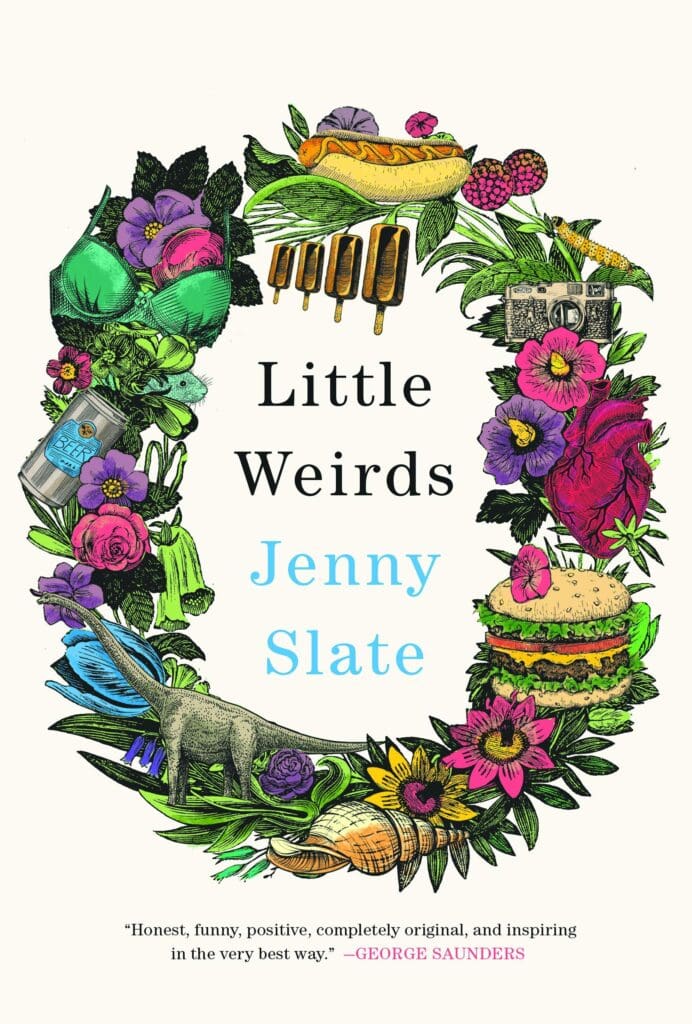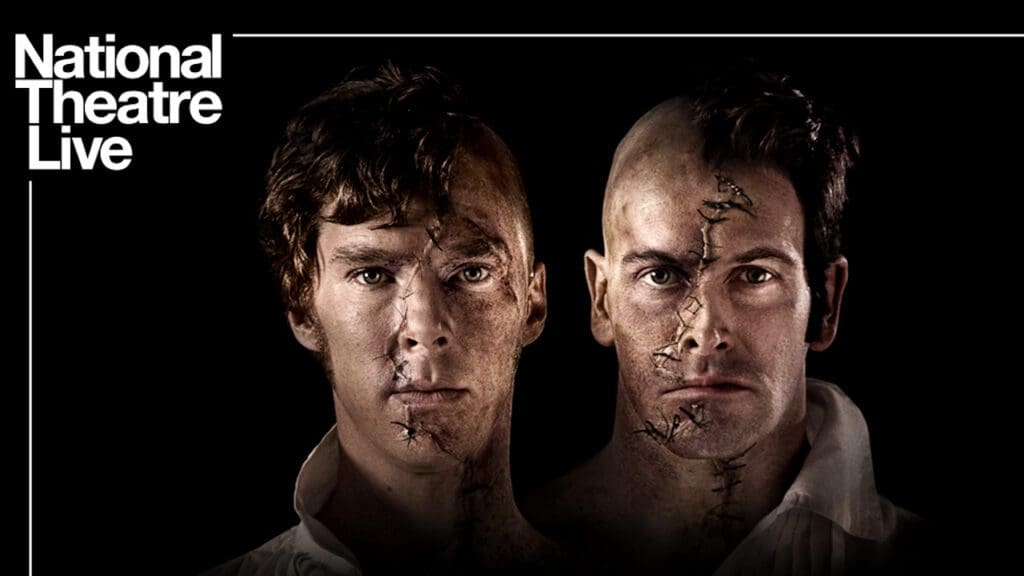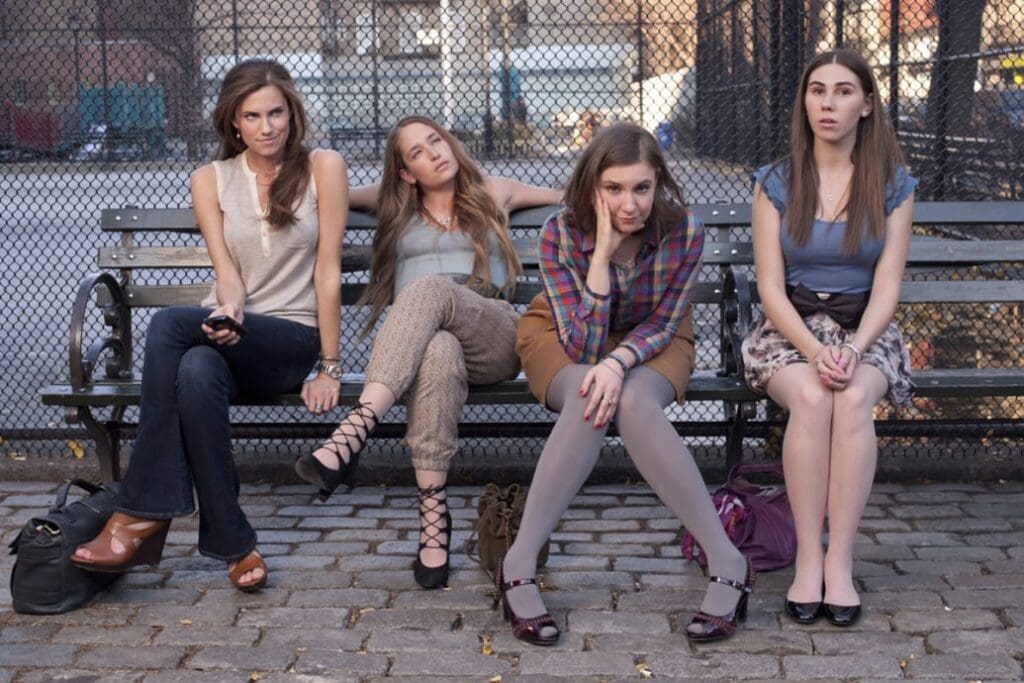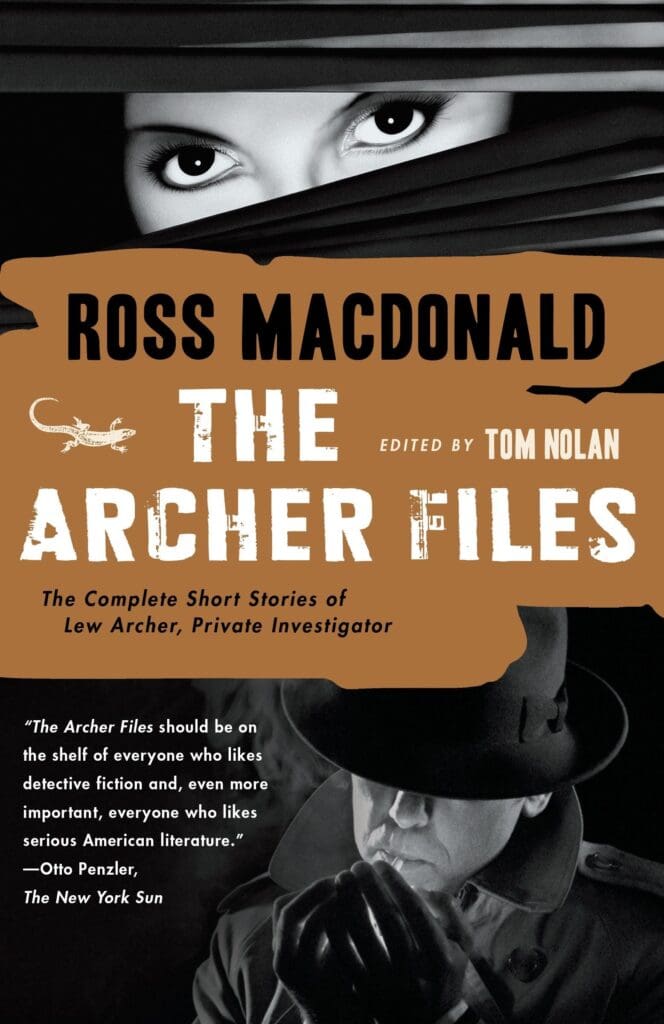It’s our hope that our readers are staying healthy and safe (don’t forget your mask at the grocery store). The Bay Area seems likely to stay sheltered in place for a bit longer than most of the country, which means we have plenty of time on our hands—and plenty of books, films, and other media to recommend! So let’s get into it:

Bella Davis, Intern: Even though I know it’s ridiculous and frankly cruel to expect anyone to be productive right now, it still feels like I need to be making something of my time in quarantine. Maybe I should pick up a new hobby like running or embroidery or making bread. Or I could start working my way through the dozens of books I own. Mostly, though, I’ve just been waking up too late in the day, working remotely, and going outside more infrequently than I’d like. Reading even a page of any book has seemed daunting, so you’ll understand why it was surprising to me when I finished Jenny Slate’s Little Weirds in two days.
This collection of essays is autobiographical. It’s often funny yet not what some might expect from Slate, a comedian and actress known for voicing characters in animated TV shows like Big Mouth and making guest appearances in Parks and Recreation. In her Netflix special Stage Fright, she picks a wedgie on stage and talks about sex in a baby voice. Her characteristic raunchy humor is present in Little Weirds, but the most memorable passages concern self-love, being alone, and making a home for yourself. She writes about watching a solar eclipse in a crowd of strangers, drinking a beer in the airport by herself but never wine because that would be sad, and choosing the right flowers for her yard.
In this moment, when so many of my days are much the same, I appreciated Slate’s celebration of simple pleasures, like spicy food, fuzzy bathrobes, and petting a dog (of course, I have several dog adoption tabs open as I write this). But what really stood out to me is her hope for a better world, however vague and optimistic that sounds. Slate recounts watching a documentary about how patriarchy came to be as a system which made women and children property and now, thousands of years later, dictates and influences our lives in many different ways. “Patriarchy is not a human-biological inevitability. Patriarchy is not here because it ‘just makes sense’ or is the product of a thoughtful rationale,” she writes. Right now, amid the despair and dread and anger of the pandemic, that’s what I keep coming back to: It didn’t have to be this way. Something better is possible. I hope we all have things in our lives reminding us of this truth.

Jesse Bedayn, Intern: Out of the few silver linings to the lockdown my favorite is a virtual deliverance from 3,600 miles away—London’s West End. Typically, once a play or cast has run its course, it disappears. But with the Shelter in Place order, National Theatre Live’s YouTube channel is reviving a different West End production every week. First came James Corden’s slapstick performance in One Man, Two Guvnors. Then Benedict Cumberbatch’s bodily contortions as the monster in Frankenstein. This week, Gillian Anderson plays Blanche DuBois in A Streetcar Named Desire as the camera rotates around an open stage encircled by the audience. If you’re not a theatergoer, this is your best chance to try world-class theater without forfeiting half your paycheck. If your first reaction is to recoil and sniff at the sacrilegious act of watching two-dimensional theater, I urge you to reconsider.
As an undergraduate in London I spent more of my student budget on theatre tickets than on groceries, and it was well worth it. Only in London can you stand feet from the Friar’s (who’s really the Duke in disguise) wooden clogs in Measure for Measure at Shakespeare’s Globe. Only in London can you watch Billy Elliot a few leagues from the mining community that inspired it. Broadway is a close second, but it can’t match London’s rich theatrical history, where specters of playwrights, actors, and monologists enliven every act on every stage. I couldn’t get enough—Billy Elliot, Kinky Boots, Lion King, Phantom of the Opera, Kinky Boots, War Horse, Book of Mormon, Hamlet, Kinky Boots, and so went my year and my grocery money. This two-dimensional viewing experience, no longer requiring an airline ticket, now offers in one season more than most of us might see in a lifetime.
While National Theatre Live’s shows cannot beat an expensive and comfortable playhouse seat, the zoomed camera angles pull viewers more deeply into the action. Without an obstructing head, you can count the stitches on Cumberbatch’s scalp as he collapses out of his makeshift womb as the monster. You can see the sweat on Corden’s cheeks as he beats the daylight out of himself: yanking his tie and then thumping his own mug with a metal trashcan lid. The screen offers a far better vantage than an unaffordable front row seat might. National Theatre Live is offering a rare opportunity to view some of the greatest literature, acting, and directing. For those uncertain about theater on a screen, I encourage you to give it a try. Those who have yet to understand why people flock to theater, may now, cheaply and easily, find out for themselves. Those who demur may have to wait for the next pandemic, and that could be far, far away.

Zack Ravas, Editorial Assistant: Stop me if you’ve heard this one before: someone recommends you a show they say is astounding, compulsively watchable, one they haven’t been able to tear themselves away from all week—there’s just one caveat, they say: you have to give it until about episode seven or eight before it “gets good.” Sure, we may have more time on our hands during these days of the perpetual lockdown, but should anyone be expected to wait seven or eight hours for a show to display interesting characterization, an intriguing narrative, snappy dialogue—you know, all the stuff that makes a series worth watching? I’m just going to put it out there: Lena Dunham’s series Girls was great from its very first episode. In it, we watch as (writer/director/executive producer/star) Dunham’s clear avatar, the humorously self-absorbed would-be writer Hannah Horvath, convenes with her closest friends—posh wildchild Jessa, motor-mouthed good girl Shoshanna, and the very-in-control Marnie—to welcome Jessa home from her recent trip abroad, a gesture of friendship that goes awry, as so much in the show does, when Hannah arrives late, only to grow loopy on “opium pod tea.”
Girls launched on HBO in April of 2012, building off the indie buzz of Dunham’s 2010 debut mumblecore feature Tiny Furniture; and the show soon became something of a cultural phenomenon, one that passed me by entirely, even though I was in some way the ideal audience for the show—about to start a MFA program in a new city, not unlike Hannah herself does in Season Four. Except I’m glad I became a belated devotee, almost a decade later and in the midst of the Bay Area’s shelter-in-place order, because to my surprise Girls became the ideal show to discover amidst social isolation.
As much as we’ve come to view the era of Prestige TV as defined by hour long dramas that challenged what we thought was possible from the medium itself—your Sopranos and your Mad Men—what still might be the most be the most ideal format for delivering TV content is the half-hour comedy series like Girls: easily digestible, immediately satisfying, and without threatening to consume an entire day when you should also be watering the plants, making progress in that book you’re reading, or generally doing anything productive besides entering a catatonic state of binge, only to wake up coated in Cool Ranch Doritos dust and left to wonder where the last three hours went.
Girls makes the most of this delightful format (see also: FX’s Atlanta), packing hilarious and embarrassing reversals, breakups, and heartaches into each half-hour morsel. And just like those other, more acclaimed shows I mentioned, it excels at conveying a time and place; its milieu just happens to be one the average viewer is more familiar with than advertising agencies in Sixties Manhattan or New Jersey mobsters: it’s twenty-something angst during the peak Obama years, that stretch of time when we just didn’t know any better, or how good we had it. The first season in particular already feels like a period piece—if the outdated iPhone iOS or references to Gchat didn’t give that away—with Hannah’s biggest struggles typically involving the price of rent in Brooklyn (would the perpetually unemployed Hannah Horvath be able to afford to live there in 2020, even before COVID-19 wiped out the economy? One hardly thinks so), trying to find the address of an exclusive hipster party while battling spotty wi-fi, and dealing with the fickle interests of her sex addict boyfriend (played by Adam Driver before he was, you know, Oscar-nominated Adam Driver).
Those of us who have been fortunate enough to avoid the virus have faced our own lesser challenges during this surreal time: cooped up in our apartments and surrounded by chain-smoking neighbors with the death-rattle coughs to prove it, tiny yapping dogs who yap at other tiny yapping dogs, or maybe a roommate who makes a louder ruckus in the kitchen than Julia Child. After the credits rolled on the first episode of Girls, I soon realized Hannah and her friends could become my escape, my outlet. Watching them experience the agonies and ecstasies of their adrift twenties recalled the faded glories of my own—though Hannah’s are far more cleverly scripted, thanks to Dunham’s still underrated comedic chops. Hannah’s struggles prove all too relatable as she attempts to pen the kind of essay collection that will set the blogosphere talking, maintain peace with her inner circle of sometimes drama-prone friends, and pin down that elusive blue bird of happiness, all the while resenting just how normal that makes her sound.
“I think I may be the voice of my generation,” Hannah says in the pilot’s oft-quoted exchange, “or at least a voice of a generation.” The irony being that in some ways Hannah did prove to be a voice of her generation, only one often wondered if she had anything to say—and her indecision, her displeasure, her overwhelming malaise became precisely the point. In a bold affront to the very notion of “character development,” but totally in keeping with her character and, well, life, Hannah keeps repeating the same mistakes, never quite “getting it”—or getting it together. Of course, the similarities between Lena Dunham herself and the character she portrays became unavoidable during the course of the show, and Dunham’s real life reputation has at times no doubt bore the brunt of her alter ego’s frequently cringe-worthy antics.
I know I cringed—when Hannah did something against her desires just because she thought a sexual partner wanted her to, or flashed the principal of her school in a misguided attempt to keep her teaching job, or managed to spin any number of her friend’s personal crisis into yet another conversation about herself…and yet I cringed mostly out of recognition. In the recognition that, if I’m honest, I’m more like Hannah than I’m not, and I suspect this may be true for many viewers (and may also be what makes them uncomfortable about the show). Hannah always seemed too messy, too flawed, too real to ever be the star of her own show…often barely holding it together, fucking up in sometimes loud and messy ways, making it up as she went along—just like the rest of us.
And so I submit Girls to the time capsule as perhaps the grand chronicle of millennial ennui, a series that seems forgotten in its own time and yet that I suspect will be appreciated in its totality in ten years from now, maybe less. The show turned out to be the most comforting and consistently entertaining thing I’ve watched during quarantine—I may not have been able to leave my apartment much, but Hannah left it for me. I lived vicariously through her anxiety-ridden days and reckless nights, appreciating both the highs and the lows, and looked forward to having some of my own again.

Oscar Villalon, Managing Editor: The Lew Archer novels of Ross Macdonald (nee Kenneth Millar) are unusual for how deceptively prosaic they are. While the inclement moods and dreamy atmospheres conjured by Raymond Chandler and Dashiell Hammett stay with the reader, what remains at the close of an Archer book is a feeling of vulnerability and finiteness. Macdonald conjures a matte representation of Southern California and its denizens: the glamour is muted, the workaday brought to the fore, which makes the nastiness—still disturbing to read these decades later—all the more cutting. That’s not to say there aren’t dazzling turns of sentences that perfectly evoke landscape, people, or places. Or that private detective Lew Archer isn’t an engaging narrator, no-nonsense and as relatively noble as he is. But more than Hammett or Chandler’s worlds, Macdonald’s is freighted with a recognizable weariness, its world informed by an author who understands there are bills to be paid, traffic to be navigated, and corruptions to be expected.
The Archer Files (592 pages; Black Lizard), edited by Tom Nolan, compiles several lengthy stories and some short unfinished pieces by Macdonald featuring Archer. Reading them has provided great entertainment, something like the comfort that binge-watching episodes of Law & Order can bring: the set-ups would be familiar to fans of noir (as are, alas, some of the mid-20th century portrayals of women and minorities) but the denouements are satisfying, even surprising. Archer is clear-eyed to the point of being ethereal, detached from the occlusions of the flesh. He’s not so much tracking people down as bearing witness to the cravenness and the evil around us. People have sinned and been sinned against, Macdonald asserts, and those transgressions will eventually be paid for—and the cost will be spectacularly vicious and frighteningly far-reaching. So escapist reading, but barely so.
